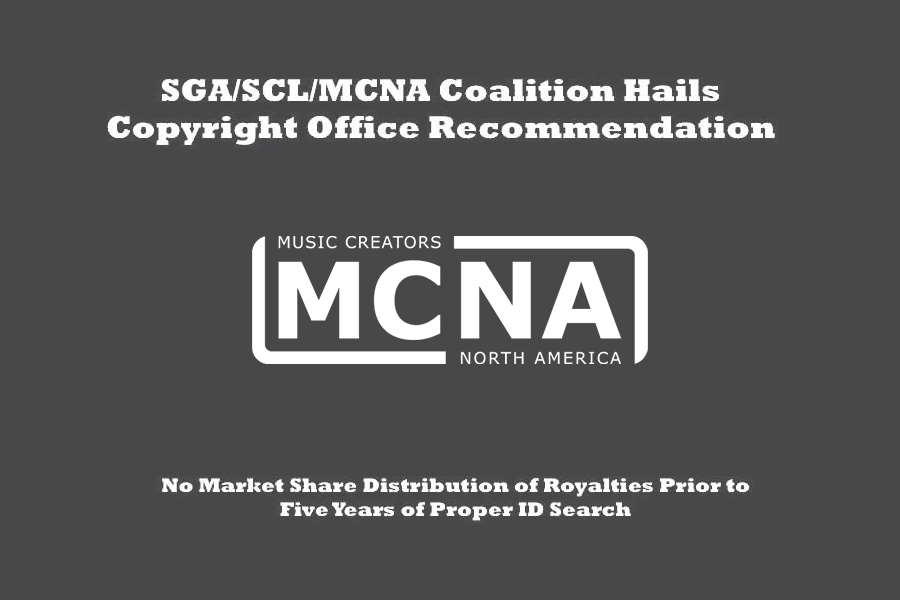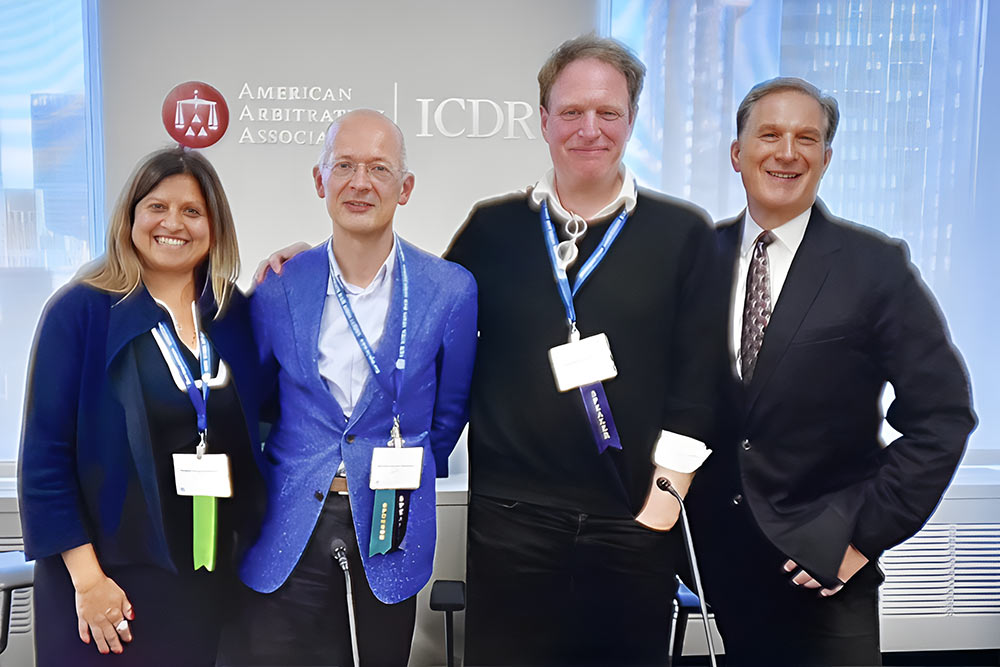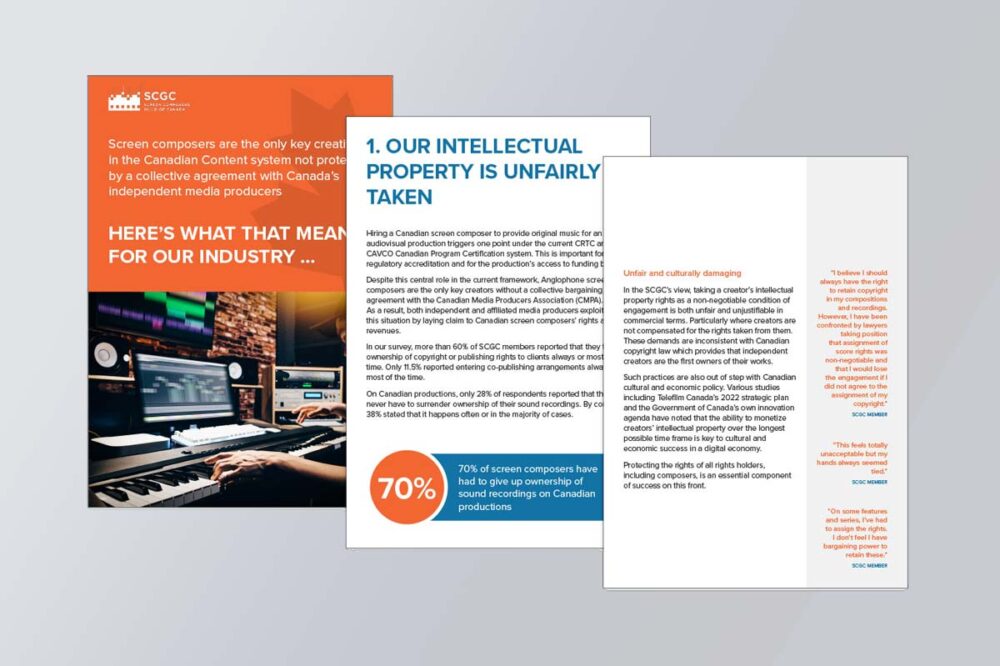Groups also warn “there is a long way to go” toward identifying the proper recipients of unmatched royalties.
The Songwriters Guild of America (SGA), the Society of Composers & Lyricists (SCL), and the Music Creators of North America (MCNA) coalition enthusiastically welcomes yesterday’s announcement that the US Copyright Office has adopted the position of delaying “market share” distribution by the Mechanical Licensing Collective (MLC) of royalties for musical works whose owners have not yet been identified. According to the Copyright Office Report, “The first distribution of unclaimed royalties should not occur for at least five years from the date that the ability to claim [ownership of works] in the portal is made available to the public … After five years, the MLC should apply relevant criteria to determine whether the first distribution should be further deferred.”
According to SGA president, songwriter Rick Carnes, “This is a critically important recommendation that gives songwriters and composers more time to claim the royalties they’re owed out of the at least $425 million in unmatched royalties currently being held by the MLC. As we have been saying in our comments all along, the inherent conflicts of interest on the MLC’s board created by the desire of major music publishers to see unmatched royalties divided on a market share basis demands that a longer period of time for accurate identification be mandated. The Copyright Office came to exactly the right conclusion on this point, though there’s a long way to go regarding full implementation of the identification process.”
SCL president and composer Ashley Irwin further praised the Copyright Office’s statement detailing the necessary elements for a robust MLC campaign to educate the music community concerning the importance of participating in the matching process. “In recognition of the music industry’s broad and diverse spectrum of songwriters and copyright owners,” states the Report “the MLC should engage to the broadest extent reasonably practicable in conducting its education and outreach activities.” Irwin and Carnes also expressed satisfaction that the Copyright Office had cited the joint comments of SGA, SCL and MCNA in that regard: “The outreach effort must not only be global in scope, but also be specifically targeted to include those economically disadvantaged and thus hardest to reach through traditional means. This includes reasonable and creative efforts to reach members of oppressed minority groups and indigenous communities across the [U.S.], Canada and the world[.]”
MCNA president and songwriter Eddie Schwartz and co-Chair/composer Greg Johnston also singled out for endorsement the Copyright Office’s recommendation that as to “permanently” unmatched royalties, after the minimum five-year identification period has passed the MLC’s market share distribution calculations “should be verified by an independent third-party accountant or auditor … The Office recommends that the finally adopted calculation methodology itself be independently reviewed as well to confirm it operates as intended.”
According to the groups, however, the Report also had some disappointing omissions. Among them, the Copyright Office declined for the time being to mandate an MLC performance metric that evaluates whether music creators actually receive their proper shares of royalties in future market share distribution scenarios. It also did not adopt a request for creation of independent music creator advisory committees to provide feedback on issues such as “private industry settlements.”
Most notably, the Office did not address the inherent dangers of conflicts of interest present on an MLC board with ten music publishers (including all of the major global conglomerates) and only four songwriter-composers. “Remedying that dangerous and exceptionally unfair construction of the MLC board, which runs contrary to the traditions of nearly all other nations, is high on the legislative agenda of America’s independent songwriters, composers and lyricists,” stated Carnes. “We’ll be addressing that issue presently.”
[Editors note: Rick Carnes, Eddie Schwartz and Greg Johnston are also members of the Fair Trade Music executive board.]


